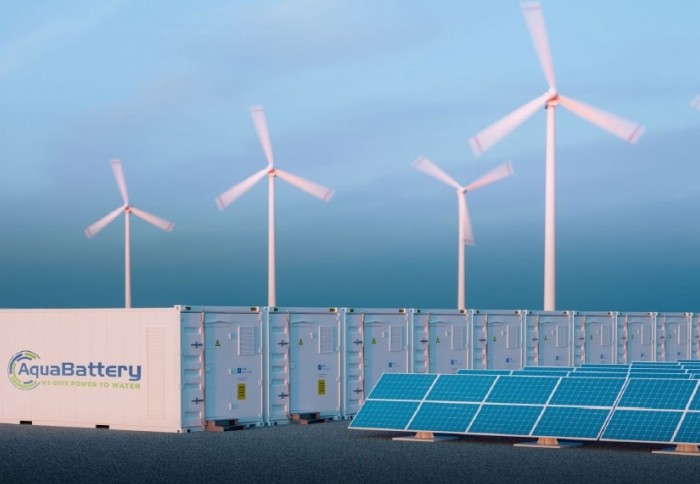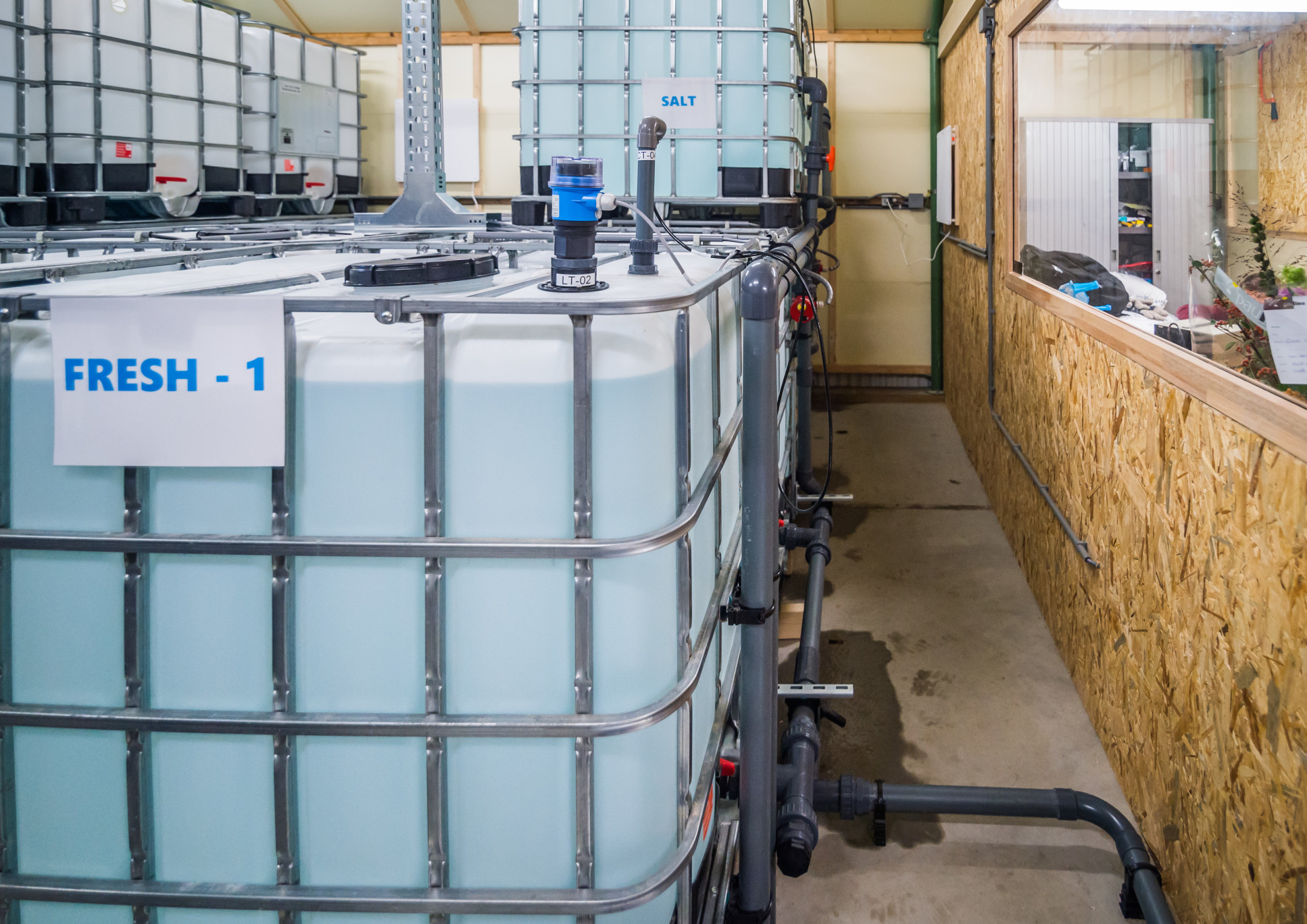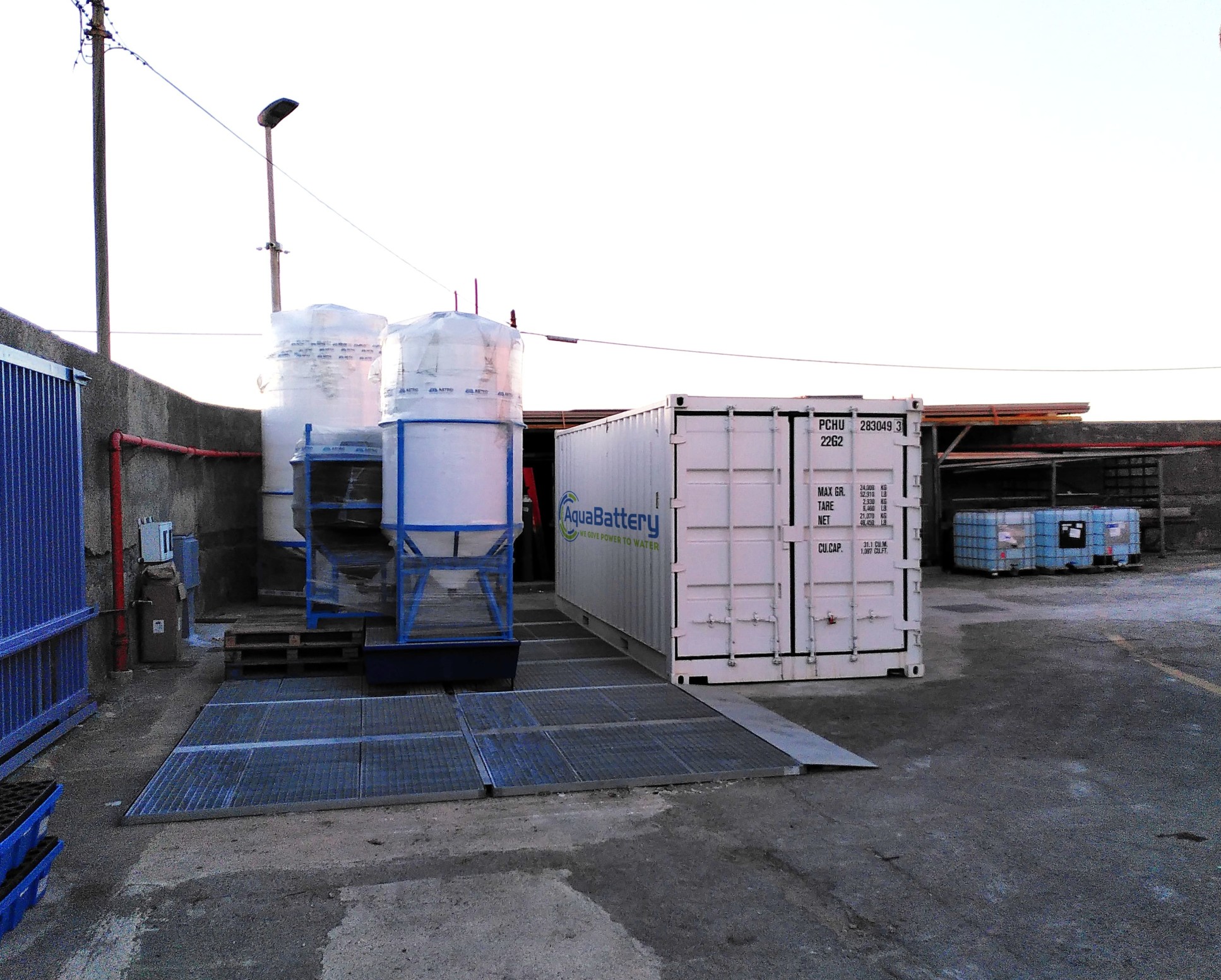Imperial graduate awarded €2.5 million European funding for saltwater battery

AquaBattery, founded by Imperial graduate Jiajun Cen, has been awarded €2.5 million to develop sustainable energy storage.
AquaBattery, founded by Imperial College London graduate Jiajun Cen, has recently been awarded €2.5 million in grant funding from the European Innovation Council’s (EIC) Accelerator. The team is developing a low-cost and sustainable long-duration energy storage solution with the vision of enabling a global transition to net-zero renewable energy.
The deep-tech company’s patented innovation uses just saltwater as the storage medium for the energy, which the team says has many advantages. As a flow battery – a battery which stores energy in electrolyte liquids – AquaBattery's innovation can independently amend power (kW) and energy (kWh) capacity.
Therefore, increasing storage capacity is as simple as adding water reservoirs to their system or using larger tanks. The team's technology uses abundant, non-toxic materials, such as water and table salt, unlike conventional lithium-ion batteries. This ensures safety from fire and health risks, while also having a low carbon footprint. As a result, AquaBattery say their solution will be low-cost, highly scalable and sustainable.

Matching supply and demand
Energy supply from renewable sources such as solar and wind is intermittent, and excess electricity is lost if the energy is not stored. As energy supply increasingly comes from such renewable sources, this leads to an unstable electrical grid and potential power outages. Batteries can address this problem by storing and releasing energy to match demand and supply, providing much needed flexibility to the grid, the team say.
With the rising share of renewables in the power mix, long-duration energy storage technologies are critical to integrate green electricity into the grid and support the decarbonisation of the economy. AquaBattery’s solution could provide virtually unlimited storage capacity from 8 hours up to days, weeks or even seasonally.

Recent world events such as the war in Ukraine and the coronavirus pandemic have highlighted the importance of energy security and supply chain resilience. The team say their technology could contribute to European strategic autonomy by enabling the uptake of renewables and commercialising a technology which does not depend on vulnerable supply chains.
Game-changing innovations
Jiajun founded AquaBattery in 2014 while studying for a PhD in Chemical Engineering at the College. After graduation in 2019, Jiajun then spent several years in the department as a visiting researcher and now works full-time at the company’s office in the Netherlands.
The EIC Accelerator supports individual Small and Medium Enterprise (SMEs) – in particular startups and spinout companies – to develop and scaleup game-changing innovations. The fund will provide around €2.5 million in grant funding to AquaBattery, with options for direct equity investment of up to €15 million depending on their needs. The grant will enable the team to speed up R&D and product development and bring forward commercialisation of AquaBattery to 2025 or earlier.
Cutting-edge research

Jiajun said: “In many ways, Imperial has been playing an important role in co-founding and successfully building AquaBattery. During my PhD research on CO2 storage in saline aquifers, I acquired not only a solid technical knowledge base, but also understood the challenges of scaling up a technology and eventually commercialising it.
"The mini MBA programme I followed at the Business School was also instrumental in this regard and taught me the multi-facets of entrepreneurship – basics of accounting, business plan writing, strategic marketing – and how to run a successful venture.
“I have been working with Imperial to further develop one of the key parts of AquaBattery, which is the bipolar ion exchange membrane where the electricity conversion from saltwater to acid and base happen. This component is the costliest part; therefore, it is crucial to produce high quality and low-cost membranes drawing on Imperial’s cutting-edge research.”
Promising technologies
The EIC Accelerator funding round, announced in December 2021, is the Accelerator’s largest-ever, with 99 innovative companies set to receive €627 million to help them bring their promising technologies to market.
The AquaBattery team were selected following a rigorous process, introduced under Horizon Europe, involving an ideas screening stage, full applications assessed by external experts and an interview with a jury of experienced investors and entrepreneurs.
Article text (excluding photos or graphics) © Imperial College London.
Photos and graphics subject to third party copyright used with permission or © Imperial College London.
Reporter
Joanna Wilson
Communications Division